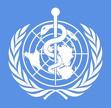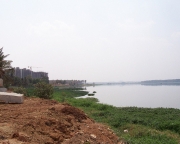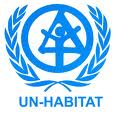Governance
"Issues of Water Governance in the Man Basin - Rahul Banerjee" : Water MOVES, Feb 2010
Posted on 28 Apr, 2010 02:30 PMHighlights of the February 2010 issue of "Water MOVES", a quarterly newsletter on Water Governance from the Water Governance Project at Society For Promotion of Wastelands Development (SPWD):
2010 UN-Water Global Annual Assessment of Sanitation and Drinking-Water (GLAAS)
Posted on 27 Apr, 2010 01:18 PM
The Global Annual Assessment of Sanitation and Drinking-Water (GLAAS) is a UN-Water initiative implemented by the World Health Organization (WHO). The objective of UN-Water GLAAS is to provide policy makers at all levels with a reliable, easily accessible, comprehensive and global analysis of the evidence to make informed decisions in sanitation and drinking-water.
With over 2.6 billion people living without access to improved sanitation facilities, and nearly 900 million people not receiving their drinking-water from improved water sources, UN-Water GLAAS highlights where efforts stagnate in achieving the Millennium Development Goal Target 7.C.¬ to halve, by 2015, the proportion of people without sustainable access to safe drinking-water and basic sanitation. It also highlights the post-2015 challenges that need to be addressed by the United Nations system to collectively support its Member States.
More rain water needed for the east flowing rivers of South India
Posted on 25 Apr, 2010 01:58 PMSIMPLE & EFFECTIVE Method to increase WATER to east flowing RIVERS of SOUTH INDIA.
WESTERN GHATS are the mighty walls created by the nature.
Need for a water meter for every flat in an apartment
Posted on 25 Apr, 2010 10:56 AMBy providing separate water meter to each flat at apartments, wastage of water which is being now observed can be avoided and WATER can very well be saved at each minute each day!
PRESENT SITUATION.
South Asia Rivers should be source of uniting people, not dividing them
Posted on 23 Apr, 2010 03:27 PMGuest Post by Himanshu Thakkar
New Delhi: A workshop organised yesterday on the sidelines of a South Asia civil society gathering under the banner of Assembly of a Union of South Asian Peoples at Jawaharlal Nehru University came up with a set of recommendations to address the question of conflict over shared rivers in the region. The key message from the meeting, which addressed issues pertaining to Pakistan, Bangladesh, Sri Lanka, Bhutan, Nepal and India, was that South Asia’s rivers should be a source of uniting peoples, not dividing them. The Assembly is being organised as a civil society counter to the official SAARC meeting to be held in Thimpu from 28-29 April 2010.
A study on Bellandur tank and changes due to urbanisation - A report by CASUMM
Posted on 21 Apr, 2010 05:08 PM This article by Collaborative for the Advancement of the Study of Urbanism through Mixed Media (CASUMM) presents the case of Bellandur Tank in Bangalore city and highlights how rapid unplanned urbanisation has led to the destruction of one of the biggest water bodies in Bangalore Urban district.
This article by Collaborative for the Advancement of the Study of Urbanism through Mixed Media (CASUMM) presents the case of Bellandur Tank in Bangalore city and highlights how rapid unplanned urbanisation has led to the destruction of one of the biggest water bodies in Bangalore Urban district.
The tank provided sustenance for people who lived in the areas surrounding it and provided water for irrigation, household purposes such as drinking, washing and cleaning, besides providing ample supply of fish. The tank was thus an integral part of the society and had a relationship with the communities residing around the tank.
Case studies on Water Management by Industry from the CII-GBC National Awards for Excellence in Water Management (2007)
Posted on 21 Apr, 2010 12:43 PM![]()
The CII-GBC National Awards for Excellence in Water Management 2007 are an important step towards encouraging, supporting and applauding industry efforts to conserve water and reduce toxic effluent discharge. As India's economic boom gathers more and more momentum with each passing year, industrial water and energy use and related environmental impacts are going to be among the most critical factors in resource sustainability debates in the country and elsewhere. The companies portrayed represent a wide spectrum of industry: paper, metals, agro-processing, synthetic fibre, petroleum, transport, cement, energy, fertilizer, soft drinks and more.
Financing on-site sanitation for the poor: A six country comparative review and analysis - A report by WSP (World Bank)
Posted on 20 Apr, 2010 06:58 PMThis report by the Water and Sanitation Programme (WSP) draws attention to the fact that a very high percentage (40%) of the population in the world does not have access to basic level of sanitation, which has serious health consequences and puts a considerable economic burden on the poor. The report explores the issue of what can be the most appropriate financing mechanisms to meet the sanitation needs of the poor.
Rejuvenation of community toilets - A policy paper by UN-HABITAT and Government of Madhya Pradesh
Posted on 20 Apr, 2010 04:12 PM The policy paper examines the condition of community toilet in terms of its infrastructure, operation & maintenance, uses and payment of user charges. The paper is a result of a joint collaboration between Water for Asian Cities (WAC) Programme of UN-HABITAT and the Directorate of Urban Administration & Development, Government of Madhya Pradesh.
The policy paper examines the condition of community toilet in terms of its infrastructure, operation & maintenance, uses and payment of user charges. The paper is a result of a joint collaboration between Water for Asian Cities (WAC) Programme of UN-HABITAT and the Directorate of Urban Administration & Development, Government of Madhya Pradesh.
In Madhya Pradesh, WAC is supporting Asian Development Bank-financed project in cities of Bhopal, Gwalior, Indore and Jabalpur to improve and expand urban water and sanitation services. This study has been taken up to monitor implementation of the water and sanitation related targets.
Sankalp 2010 Social Enterprise and Investment Forum, Intellecap, Mumbai
Posted on 20 Apr, 2010 12:55 PMOrganizer: Intellecap
Venue: Mumbai, Maharashtra, India
Description:
Sankalp Forum catalyzes entrepreneurship in the social business space. India's largest gathering of more than 400 social innovators, impact investors, policy leaders and change makers.





